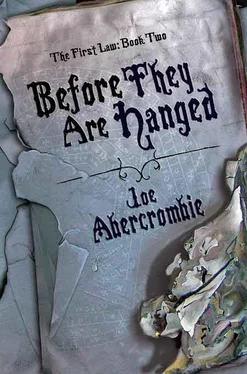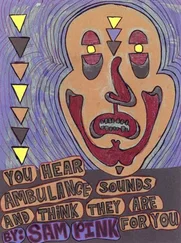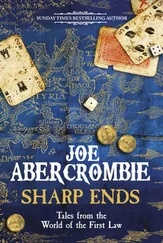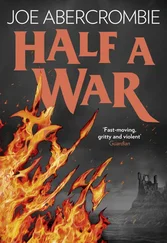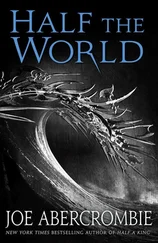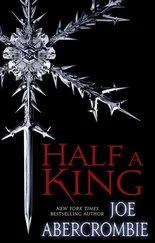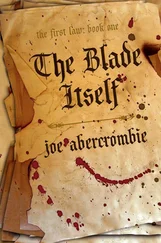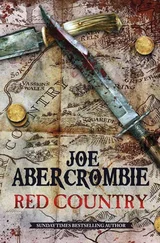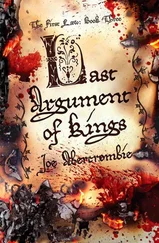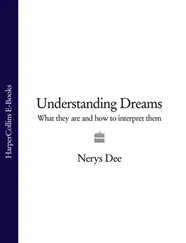“I hope you will convey my sincere apologies to them.”
“I will do so. My name is Tulkis, and I am a councillor to Uthman-ul-Dosht, the Emperor of Gurkhul.” The envoy grinned, a crescent of strong white teeth in his black beard. “I hope I fare better at your hands than the last emissary my people sent to you.”
Glokta paused. A sense of humour? Most unexpected. “I suppose that would depend on the tone you take.”
“Of course. Shabbed al Islik Burai always was… confrontational. That, and his loyalties were… mixed.” Tulkis’ grin grew wider. “He was a passionate believer. A very religious man. A man closer perhaps to church, than to state? I honour God, of course.” And he touched his fingertips to his forehead. “I honour the great and holy Prophet Khalul.” He touched his head again. “But I serve…” And his eyes slid up to Glokta’s. “I serve only the Emperor.”
Interesting. “I thought that in your nation, church and state spoke with one voice.”
“It has often been so, but there are those among us who believe that priests should concern themselves with prayer, and leave the governing to the Emperor and his advisors.”
“I see. And what might the Emperor wish to communicate to us?”
“The difficulty of capturing Dagoska has shocked the people. The priests had convinced them that the campaign would be easy, for God was with us, our cause was righteous, and so forth. God is great, of course,” and he looked up to the ceiling, “but he is no substitute for good planning. The Emperor desires peace.”
Glokta sat silent for a moment. “The great Uthman-ul-Dosht? The mighty? The merciless? Desires peace?”
The envoy took no offence. “I am sure you understand that a reputation for ruthlessness can be useful. A great ruler, especially one of as wide and various a country as Gurkhul, must first be feared. He would desire to be loved also, but that is a luxury. Fear is essential. Whatever you may have heard, Uthman is neither a man of peace, nor of war. He is a man of… what would be your word? Necessity. He is a man of the right tool at the right time.”
“Very prudent,” muttered Glokta.
“Peace, now. Mercy. Compromise. These are the tools that suit his purposes, even if they do not suit the purposes of… others,” and he touched his fingers to his forehead. “And so he sends me, to find out if they suit you also.”
“Well, well, well. The mighty Uthman-ul-Dosht comes with mercy, and offers peace. These are strange times we live in, eh, Tulkis? Have the Gurkish learned to love their enemies? Or simply fear them?”
“One need not love one’s enemy, or even fear him, to desire peace. One need only love oneself.”
“Is that so?”
“It is. I lost two sons in the wars between our peoples. One at Ulrioch in the last war. He was a priest, and burned in the temple there. The other died not long ago, at the siege of Dagoska. He led the charge when the first breach was made.”
Glokta frowned and stretched out his neck. A hail of flatbow bolts. Tiny figures, falling in the rubble. “That was a brave charge.”
“War is harshest on the brave.”
“True. I am sorry for your losses.” Though I feel no sorrow, in particular.
“I thank you for your heartfelt condolences. God has seen fit to bless me with three more sons, but the spaces left by those two children lost will never close. It is almost like losing your own flesh. That is why I feel I understand something of what you have lost, in these same wars. I am sorry for those losses also.”
“Most kind.”
“We are leaders. War is what happens when we fail. Or are pushed into failure by the rash and the foolish. Victory is better than defeat, but… not by much. Therefore, the Emperor offers peace, in the hope that this may be a permanent end to the hostilities between our great nations. We have no true interest in crossing the seas to make war, and you have no true interest in toeholds on the Kantic continent. So we offer peace.”
“And is that all your offer?”
“All?”
“What will our people make of it, if we surrender Dagoska up to you, so dearly bought in the last war?”
“Let us be realistic. Your entanglements in the North put you at a considerable disadvantage. Dagoska is lost, I would put it from your mind.” Tulkis seemed to think about it for a moment. “However, I could arrange for a dozen chests to be delivered, as reparations from my Emperor to your King. Chests of fragrant ebony wood, worked with golden leaf, carried by bowing slaves, preceded by humble officials of the Emperor’s government.”
“And what would these chests contain?”
“Nothing.” They stared at each other across the room. “Except pride. You could say they contained whatever you wished. A fortune in Gurkish gold, in Kantic jewels, in incense from beyond the desert. More than the value of Dagoska itself. Perhaps that would mollify your people.”
Glokta breathed in sharply, and let it out. “Peace. And empty boxes.” His left leg had gone numb under the table and he grimaced as he moved it, hissed through his gums as he forced himself out of his chair. “I will convey your offer to my superiors.”
He was just turning away when Tulkis held out his hand.
Glokta looked at it for a moment. Well, where’s the harm? He reached out and squeezed it.
“I hope you will be able to persuade them,” said the Gurkish envoy.
So do I.
On the morning of their ninth day in the mountains, Logen saw the sea. He dragged himself to the top of yet another painful scramble, and there it was. The track dropped steeply away into a stretch of low, flat country, and beyond was the shining line on the horizon. He could almost smell it, a salty tang on the air with each breath. He would have grinned if it hadn’t reminded him of home so much.
“The sea,” he whispered.
“The ocean,” said Bayaz.
“We have crossed the western continent from shore to shore,” said Longfoot, grinning all the way across his face. “We are close now.”
By afternoon they were closer still. The trail had widened to a muddy lane between fields, split up with ragged hedges. Mostly brown squares of turned earth, but some green with fresh grass, or with the sprouts of vegetables, some waving tall with a grey, tasteless-looking winter crop. Logen had never known much about farming, but it was plain enough that someone had been working this ground, and recently.
“What kind of people live all the way out here?” murmured Luthar, looking suspiciously out across the ill-tended fields.
“Descendants of the pioneers of long ago. When the Empire collapsed, they were left out here alone. Alone they have flourished, after a fashion.”
“You hear that?” hissed Ferro, her eyes narrowed, already fishing an arrow from her quiver. Logen put his head up, listening. A thumping sound, echoing from some distance, then a voice, thin on the wind. He put his hand on the grip of his sword and crouched down. He crept to an unruly stretch of hedge and peered over, Ferro beside him.
Two men were struggling with a tree stump in the midst of a turned field, one chopping at it with an axe, the other watching, hands on hips. Logen swallowed, uneasy. These two hardly looked much of a threat, but looks could lie. It had been a long time since they met a living thing that hadn’t tried to kill them.
“Calm now,” muttered Bayaz. “There is no danger here.”
Ferro frowned across at him. “You’ve told us that before.”
“Kill no one until I tell you!” hissed the Magus, then called out in a language Logen didn’t know, waving one arm over his head in a gesture of greeting. The two men jerked round, staring open-mouthed. Bayaz shouted again. The farmers looked at each other, then set down their tools and walked slowly over.
Читать дальше
